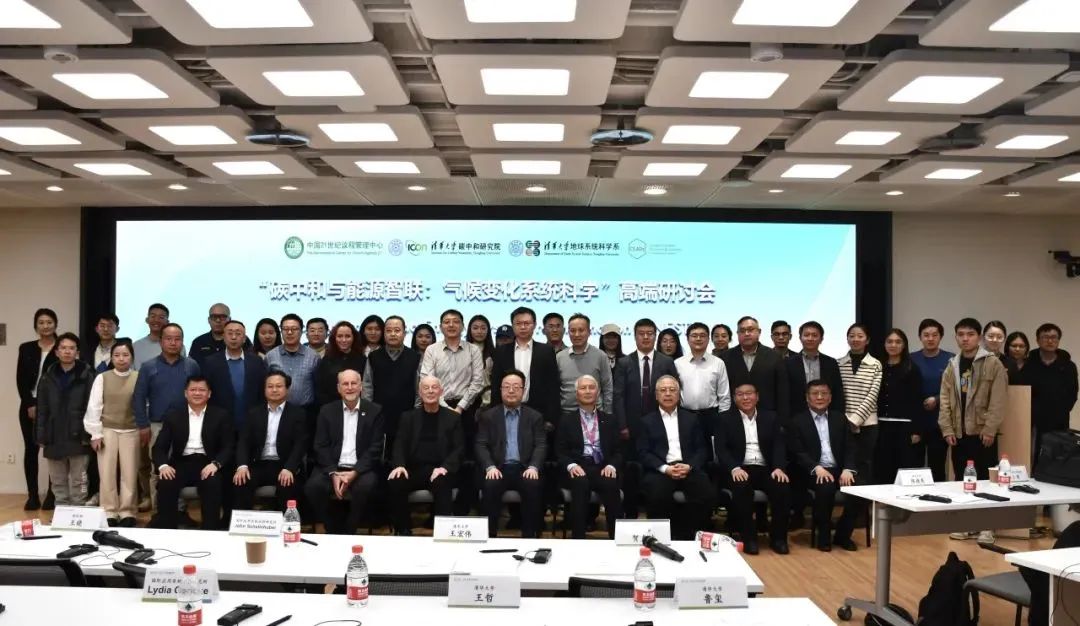The High-Level Symposium on "Carbon Neutrality and Energy System Transformation(CNEST): Climate Change System Science" and the Tsinghua-IIASA Joint Workshop were successfully convened in Beijing on November 29. The event brought together leading scholars from Tsinghua University, the International Institute for Applied Systems Analysis (IIASA), Peking University, Zhejiang University, Beijing Normal University, North China University of Water Resources and Electric Power, the University of Chinese Academy of Sciences, and the Chinese Academy of Meteorological Sciences, alongside representatives from the Department of International Cooperation of the Ministry of Science and Technology, the National Natural Science Foundation of China, and the Administrative Center for China’s Agenda 21. Participants engaged in in-depth discussions on the current status, potential, opportunities, and challenges in climate change and sustainable development, offering new insights to advance Sino-European collaboration in carbon neutrality and energy system transformation.
Co-hosted by the Administrative Center for China’s Agenda 21, Tsinghua University’s Institute for Carbon Neutrality, and the Department of Earth System Science, the symposium featured addresses from Wang Hongwei, Vice President of Tsinghua University; Prof. Hans Joachim Schellnhuber, Director General of IIASA; Wang Xiao, Deputy Director-General of the Department of International Cooperation at the Ministry of Science and Technology; Zhang Yongtao, Deputy Director-General of the Bureau of International Cooperation of the National Natural Science Foundation of China; and Chen Qizhen, Deputy Director of the Administrative Center for China’s Agenda 21.
In his speech, Vice President Wang Hongwei highlighted IIASA’s strengths in interdisciplinary research on sustainability and complex global challenges. He expressed hope for future collaboration between Tsinghua and IIASA in scientific research and talent development.
Deputy Director-General Wang Xiao outlined five key efforts by the Ministry of Science and Technology to support carbon neutrality goals, including strengthening lab and innovation platforms and enhancing international cooperation.
Zhang Yongtao emphasized the importance of global research collaboration in energy transition and climate modeling, while Chen Qizhen called for deeper international exchanges to boost innovation in policy and technology.
The symposium included keynote sessions chaired by Prof. Luo Yong, Head of Tsinghua’s Department of Earth System Science. Notable presentations were delivered by:
Prof. Hans Joachim Schellnhuber (IIASA), who stressed the urgency of achieving carbon neutrality and the role of AI in sustainability research;
Prof. Chen Deliang (Tsinghua), who highlighted global cooperation in energy structure optimization and urban resilience;
Prof. Zhang Xiaoye (Chinese Academy of Meteorological Sciences), who analyzed pathways and challenges for China’s carbon neutrality goal;
Prof. Liu Junguo (North China University of Water Resources and Electric Power), who discussed climate impacts on water resources and sustainable management strategies;
Prof. He Kebin (Tsinghua Institute for Carbon Neutrality), who explored pathways for transforming energy systems under uncertainty.
A roundtable discussion moderated by Prof. Guan Dabo, Deputy Director of the Institute for Carbon Neutrality, featured experts from IIASA, Peking University, Zhejiang University, Beijing Normal University, and the University of Chinese Academy of Sciences. Panelists emphasized the need for interdisciplinary collaboration and shared Sino-European experiences in climate response.
In closing, Prof. He Kebin underscored the importance of integrating climate science with AI, information technology, and materials science to enable a smart, low-carbon transition in energy systems.
The symposium provided a high-level platform advancing cross-disciplinary research and international cooperation, contributing scientific and policy insights to global climate goals.

 Latest recommendations
Latest recommendations


